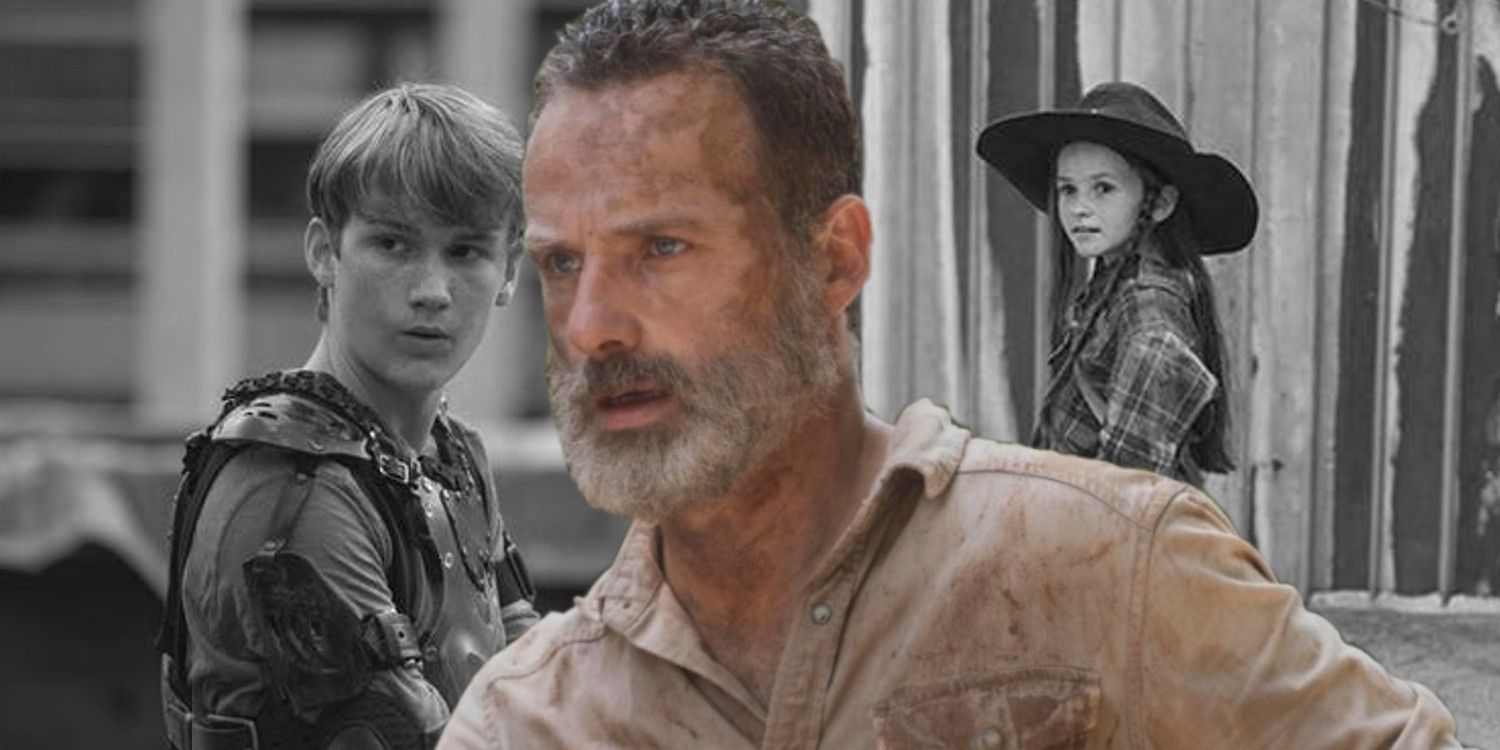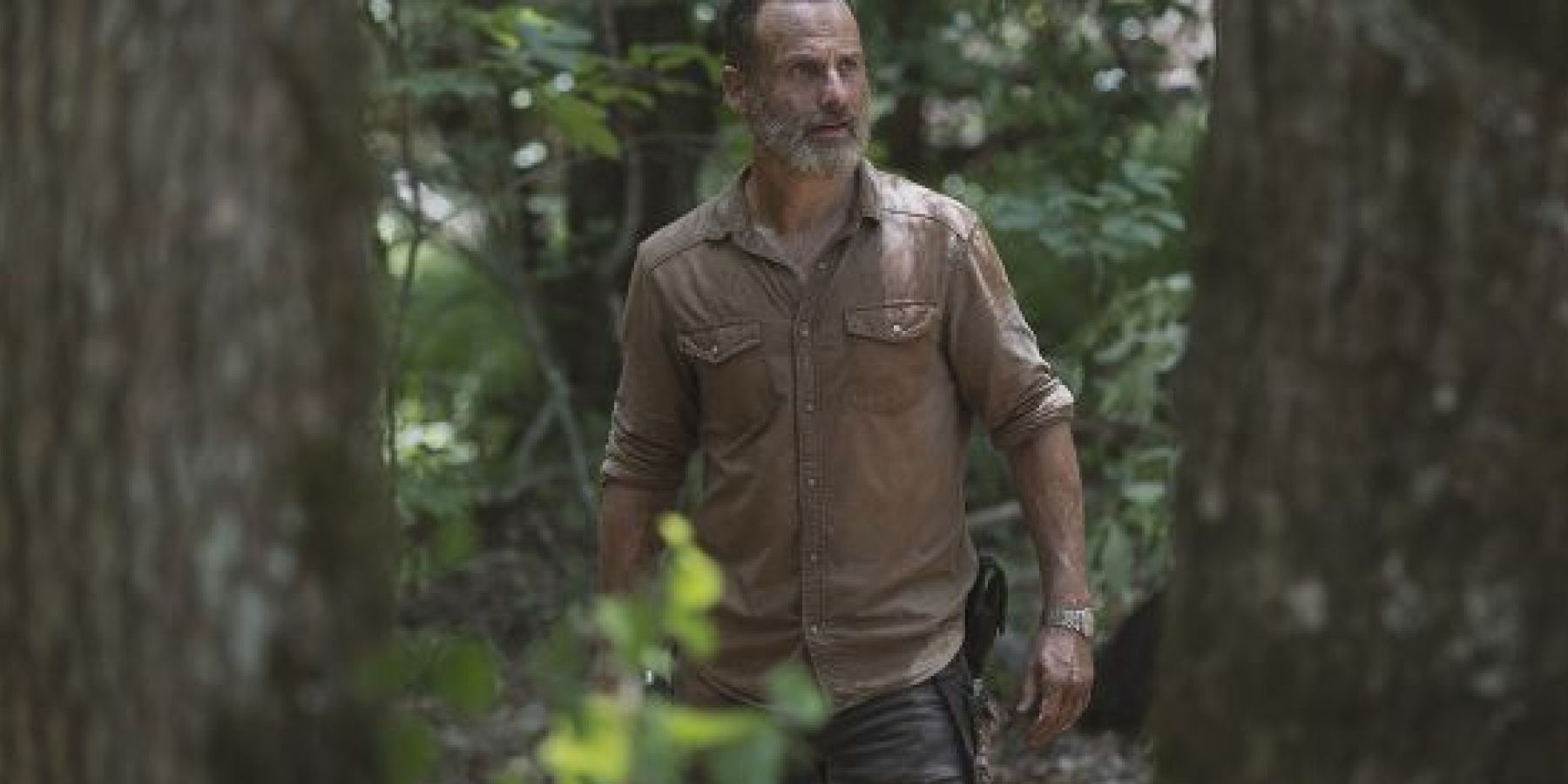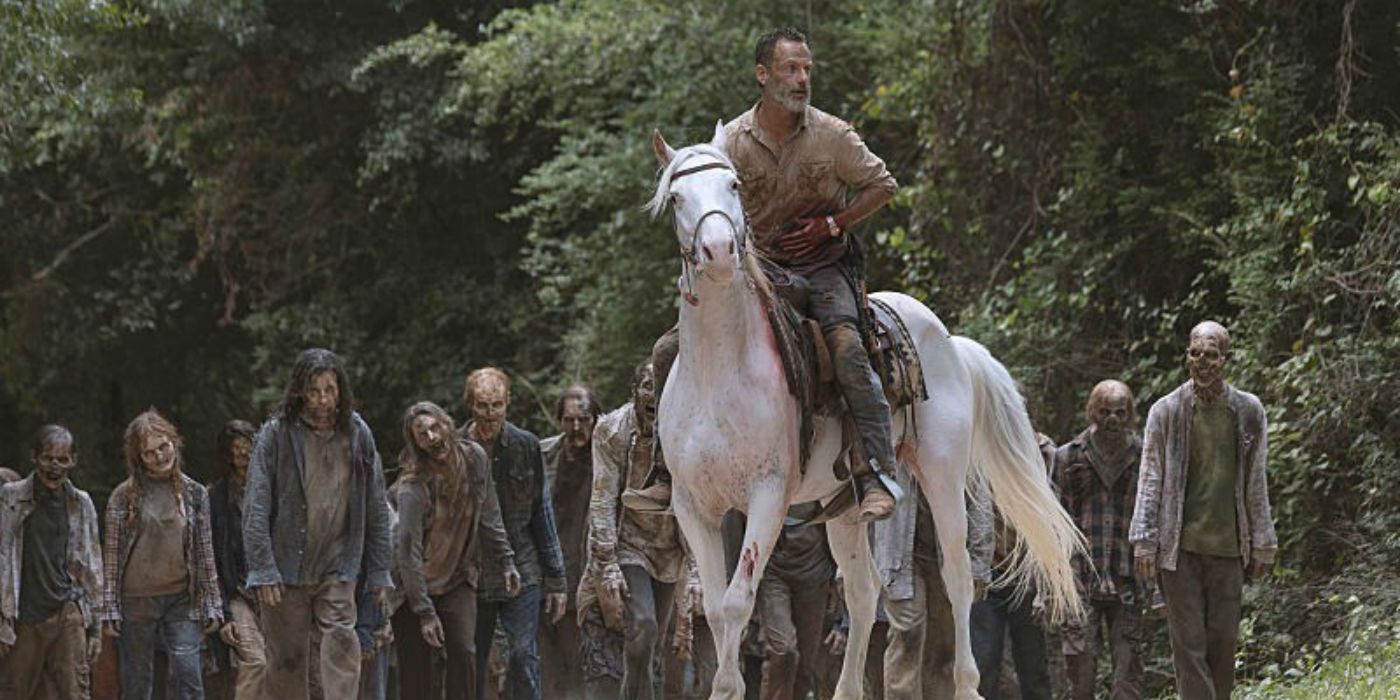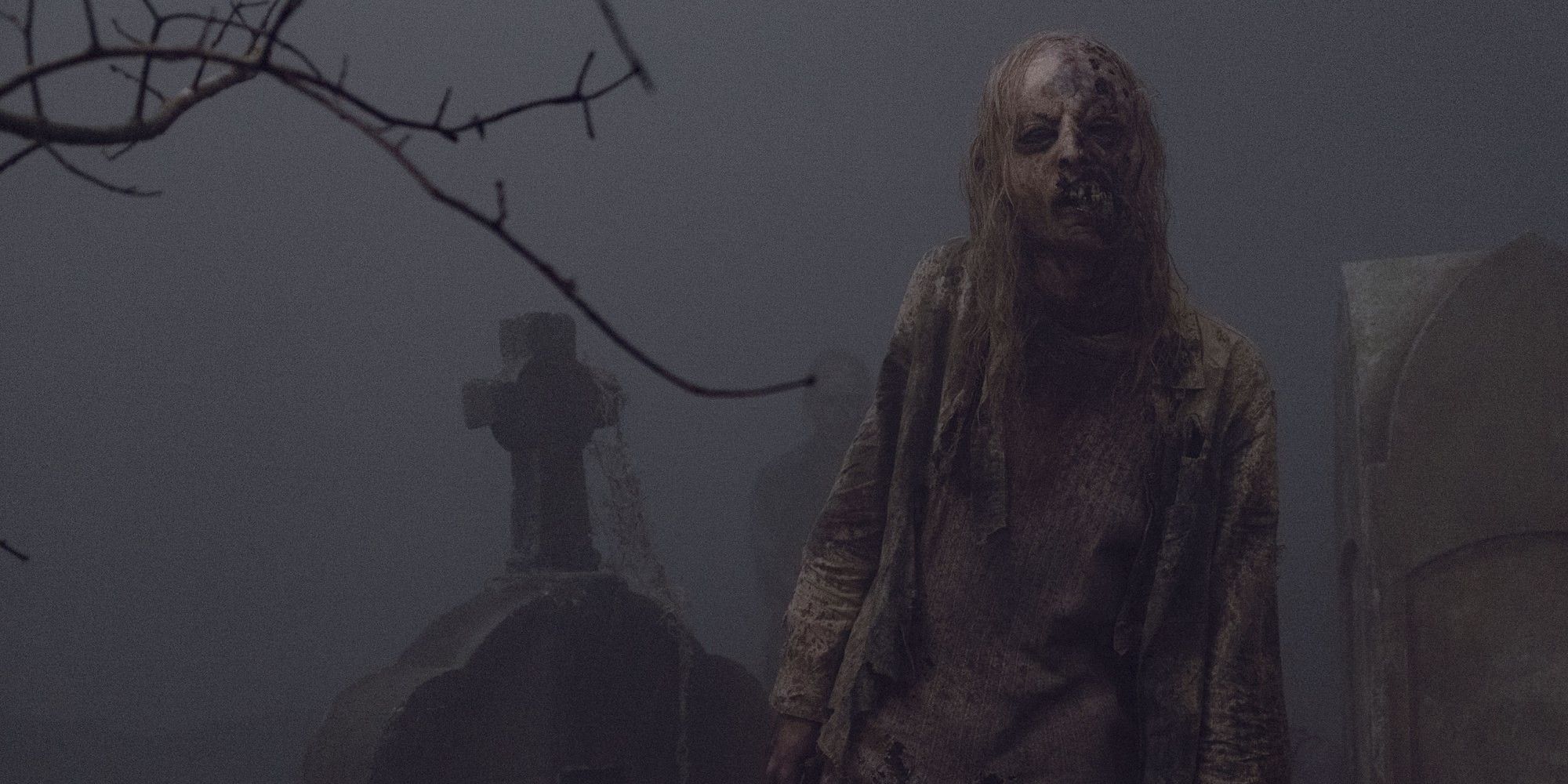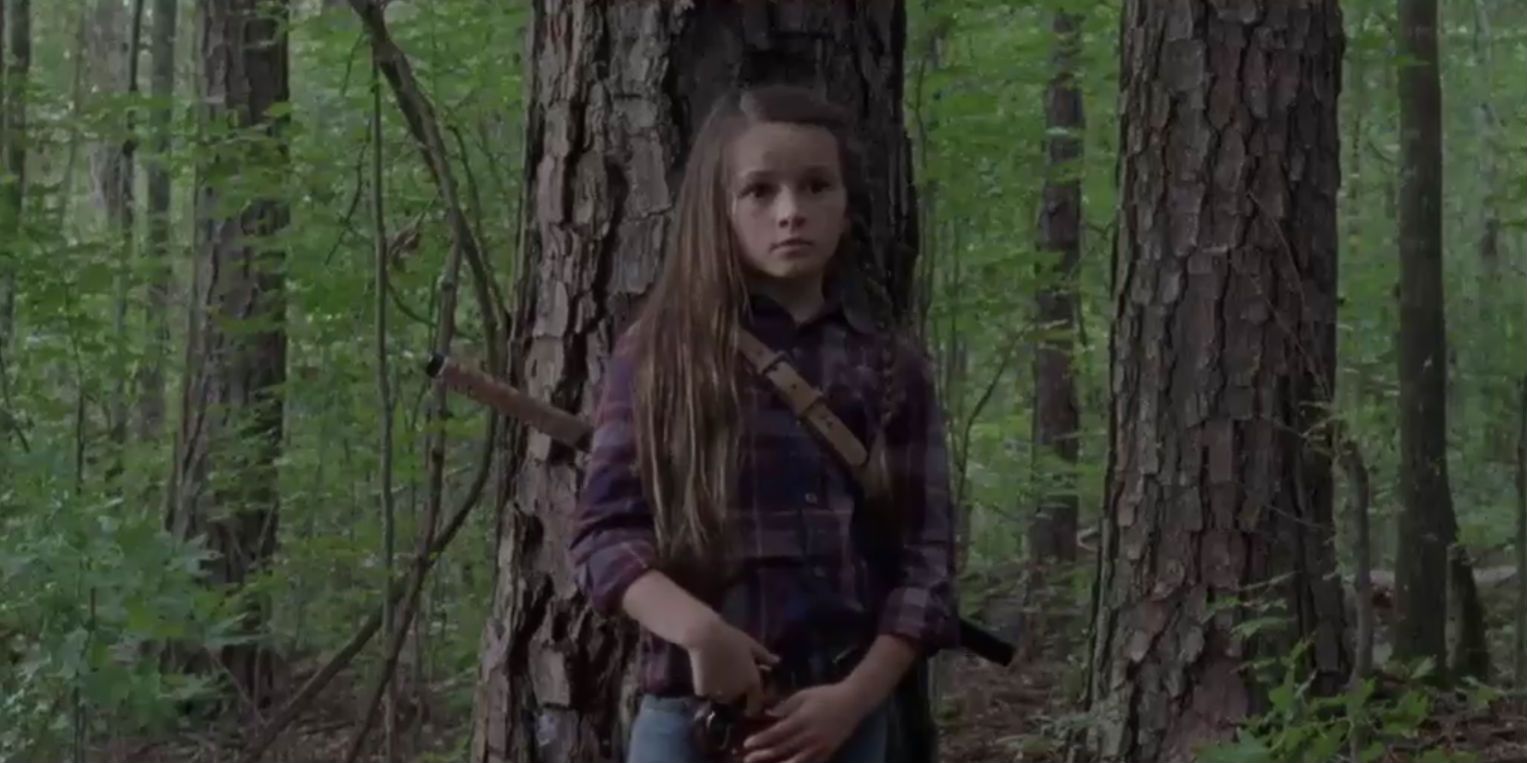The Walking Dead pulled a cheap trick when it decided not to kill off Rick Grimes (Andrew Lincoln), but that fake-out has given the AMC series a brand new lease of life. Season 9 was already showing signs of improvement before Rick's departure, but since then things have gotten even better.
There was a huge question mark over how The Walking Dead could continue without its main protagonist, but the loss of Rick has served to push other characters and storylines to the forefront. What's more, the way they've done this means it's as a consequence not just of Rick's exit, but more specifically the way it happened.
Related: The Walking Dead Has Already Replaced Carl Grimes
Had Rick genuinely died, or even left in a more honest way, then things wouldn't have been able to play out as they have. It doesn't make the handling of the affair better, but The Walking Dead is looking strong again as a result.
- This Page: Rick's "Death" Is Meaningless
- Page 2: Rick's Exit Finally Allows The Walking Dead To Move Forward
Rick's Departure From The Walking Dead Was Exhausting
Andrew Lincoln's departure from The Walking Dead was first reported back in May, meaning there were almost five months of build-up to 'Rick's last season'. Once it started airing, that then became 'Rick's final episodes', with a huge push for the final two in particular.
It's easy to see why AMC chose to do this. There was no sense in trying to hide things because everyone already knew Lincoln was going. This massive push was a great way to bring back some lapsed viewers, who'd want to bid farewell to the character they followed for so many years. But it also meant that Rick's exit was a long, drawn-out process, and quite an exhausting one at that.
After all the marketing hype, there was the first suggestion of how Rick might die in episode 4, 'The Obliged'. The end left Rick wounded and surrounded by walkers, with no real means of escape. The next episode was then almost entirely given over to his bid not for survival, but simply to get back to his family. There were dream sequences, visions, guest stars, and fake-outs. A lot of this generated the required emotional response, but then after his sacrifice, just when both he and viewers had accepted his fate, he's saved by Anne. Then after that - as in, immediately after the episode - a new movie trilogy following what happens next was announced. It should've been a poignant goodbye - and almost was - but in the end it was a tiring, irritating, eye-rolling farewell.
Related: Walking Dead Midseason Finale: The 5 Biggest Comic Changes & Differences
Rick's "Death" Is Likely To Be Meaningless
Adding insult to injury is that the whole build-up to Rick's exit, not to mention the departure itself, is going to be meaningless. The movie trilogy, which will star Lincoln and is being written by former showrunner Scott Gimple, guarantees that on its own. It means Rick still has to stick around the world of The Walking Dead, but without being in the part of it where his character fits and has actual relationships fans care about.
Even worse, though, is the likelihood that Lincoln will eventually return to The Walking Dead. The actor may be ruling it out for now, but the way it ends means there has to be a crossover of some sort. There is zero chance Rick Grimes would stop trying to get back to his family, and his arc cannot have closure without seeing them one last time.
It'd be more likely a guest appearance than a return to the lead role, but it'd be more surprising if we didn't see Rick having another last episode than him doing so, and that renders the whole thing moot.
Page 2: The Walking Dead's Time Jump Has Reinvigorated The Show
The Walking Dead's Time Jump Has Reinvigorated The Show
The Walking Dead has shot so far into the future that it's basically had a fresh start. With the memory of Rick still there, characters have been able to move on in ways they think best honors him. The Walking Dead has been able to give more screentime and development to a whole host of survivors, but also change up its tone and format.
Related: The Walking Dead: 9 Unanswered Questions From The Midseason Finale
This was the point of Season 9, which has new showrunner Angela Kang, but until Rick's "death" it was still stuck with one foot in the past. This decision has forced The Walking Dead into making some serious changes and having to freshen things up, in a way it hasn't been pushed to for far too long.
What's Rick's fake-out death has done - and Jesus' death is another similar example of this - is make The Walking Dead unpredictable again. That's one of the strengths it was built on, but it's been a predictable snoozefest since the Season 7 premiere. Thanks to the time jump, which in turn has led to The Whisperers, there's a sense of danger and dread. The Whisperers themselves represent the most exciting villain the series has had in years. Rick and Jesus were both interesting characters who might've had more to offer, but it's also clear The Walking Dead has finally been given the major shake-up its long been in desperate need of.
Rick's "Death" Allowed The Walking Dead To Move Forward
Rick's exit may not have been quite the event it should have, but its combined twists have done one thing: allowed The Walking Dead to move forwards. That's not to say The Walking Dead is better without Rick, but once Lincoln made up his mind, the writers and producers were forced with the difficult challenge of how to continue without the character who had been the show for so long.
If he had died for real, then they would've needed to explore the fallout from that and the immediate aftermath. We'd need to see the sense of loss, the sadness, the grief, and a funeral. Rick's shadow would've hung over everything. If he'd had a more open exit that the characters knew about, then again, the show could just continue on its old timeline. And again, the specter of Rick Grimes would be looming.
Related: Walking Dead: What Happened To Negan & Where His Story Goes Next
By having audiences know he's alive, but all of the characters (sans Anne) thinking he is dead, that meant they could do the six-year time jump. After all, there's no need to watch characters go through so much grieving for a hero we know is still alive. And it's that time jump that has really allowed The Walking Dead to move on and start again.
Judith Grimes (Star Wars: The Force Awakens' Cailey Fleming) is a great example of this: she was far too young to have any sort of impact before the time skip, but is now a genuinely fascinating character. She's someone who wants to honor her father's legacy, and has an inherent goodness to her, while showing what's it's like to grow up as someone born in the midst of an apocalypse.
So many other characters have benefited too, with the time jump - and the extra screen time - allowing them to be more fleshed out. Daryl and Carol are back to being two of the show's most interesting survivors, and the likes of Ezekiel and Rosita, who were beginning to outstay their welcome, feel like important parts of the series again. It's given itself a clean break from Rick Grimes, which means it can be defined as a whole new era, rather than existing simply in the shadow of his exit. For the first time in a long time, The Walking Dead is moving forward with a genuine sense of purpose, rather than simply stumbling around, lost in the woods.
Next: When Walking Dead Returns & What To Expect From Season 9's Second Half

